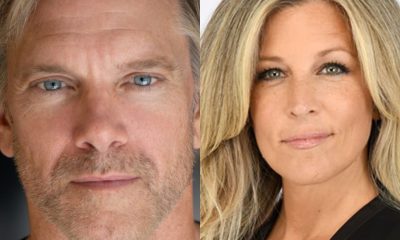Days Of Our Lives
NATAS President, Adam Sharp Talks On Daytime Emmy Review Findings & Plans For Change To Competition Process
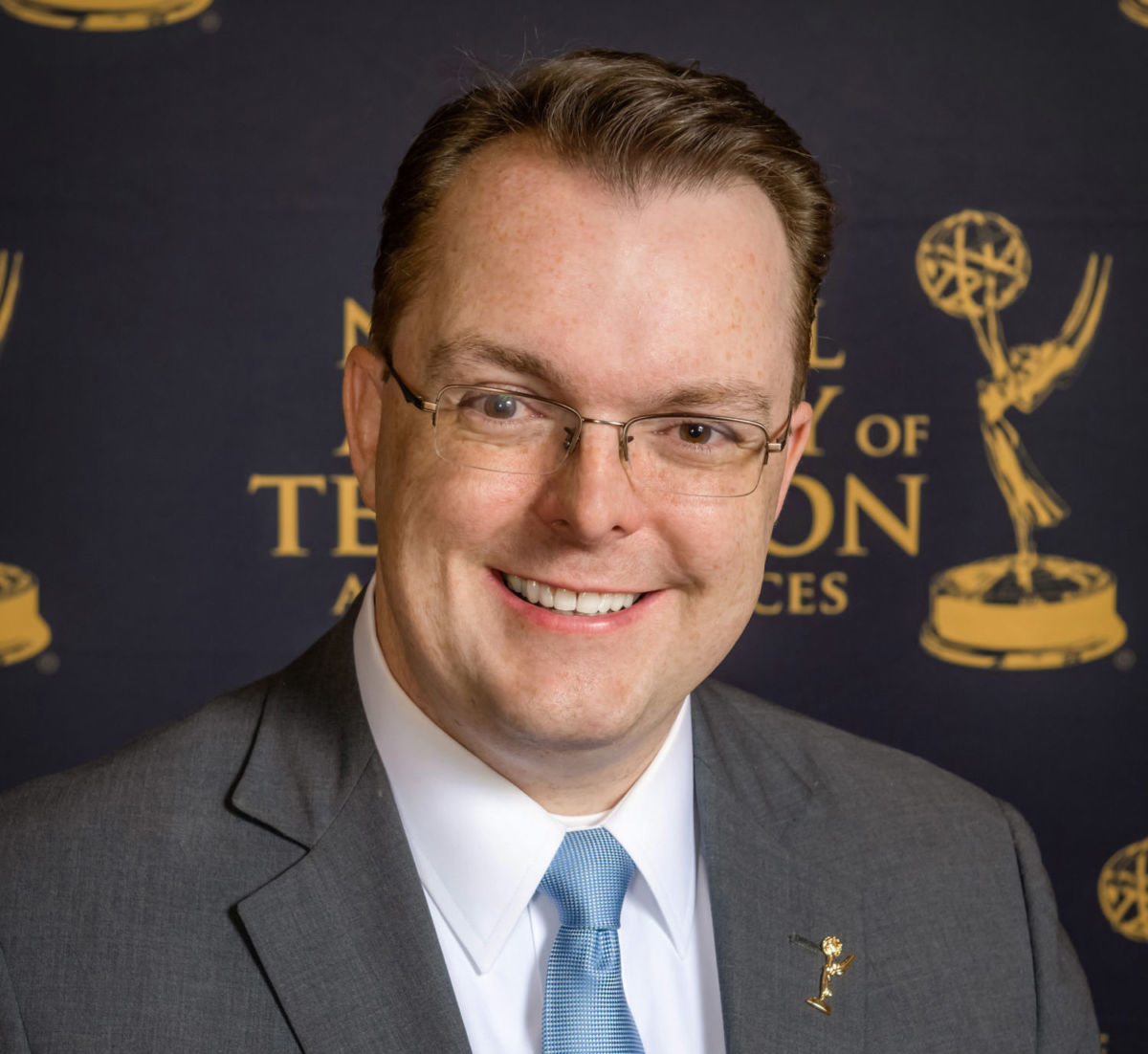
In the aftermath of the letter that was sent to NATAS from daytime drama executives and producers demanding immediate change to the Daytime Emmys contest procedures, guidelines, or they would boycott participating in the upcoming 46th Annual competition, earlier today NATAS and its new president, Adam Sharp, released the findings of an independent investigation into the allegations levied against the academy and its annual competition.
After the full findings came to light , seemed to address most of the concerns raised by the four network soaps, Michael Fairman TV spoke with Adam Sharp to dive into what the reports means for change and evolution of the Daytime Emmys, and if it can resolve the issues so that General Hospital, The Young and the Restless, The Bold and the Beautiful, and Days of our Lives will come to the table and participate in the only kudofest honoring excellence in front of the camera and behind-the-scenes for daytime programming,
Here’s what Adam had to say about the key points addressed in our conversation below.
Transparency was a key issue noted by the soap producers in their concerns levied against NATAS. One of the points centered around if NATAS had prior knowledge of the winners before the opening of the envelopes at the ceremony and the integrity of the contest. What can you detail what the investigation found?
ADAM: On the matter of whether anyone had prior knowledge to the winners, the reports clearly state that there is no evidence to support that. To the concern raised on the arm’s length distance necessary between us and the accountants we use to tally the votes, again there is no evidence to suggest that there was anything short of what you would expect of the standards of the competition. What it did find was that there were processes that either by virtue of generosity and us trying to be helpful when they asked, or by a lack of documentation to make people aware of policies and procedures, that created the appearance of unfairness, or unbalance in the process that may have been completely unintentional. For example, the report noted that we did not have a published procedure for appealing decisions or filing any concerns or complains. Some of this started because of one entrant in a digital category that raised concerns, and it was certainly elevated when the four soaps sent their letter, but without a published procedure, you’re really putting the onus on the entrants to know who to call and how to bring their concern. So, that creates a system where there’s an imbalance because someone who doesn’t know who to call, doesn’t get the same hearing. Likewise, if someone has made a mistake or technical error in their entry, and they happen to have entered the process early, and we catch it, we, in the past, have gone back to people and said, “Hey, I don’t think you intended to do this. Would you like to resubmit?” But if someone is entering at 11:59:59 on deadline night, they won’t necessarily have that. Again, completely unintentional, but it could be argued that it created an imbalance or bias in the process, and the report made that clear. For those types of things, we are going to crack down and be more consistent about our policies. I told Brent and David that it’s going to mean saying no a lot more often in terms of giving waivers and extensions, and the types of things that we have done in the past to help people along. It is going to mean being more transparent and public about what our policies and procedures are so that every entrant has the equal set of knowledge to work from.
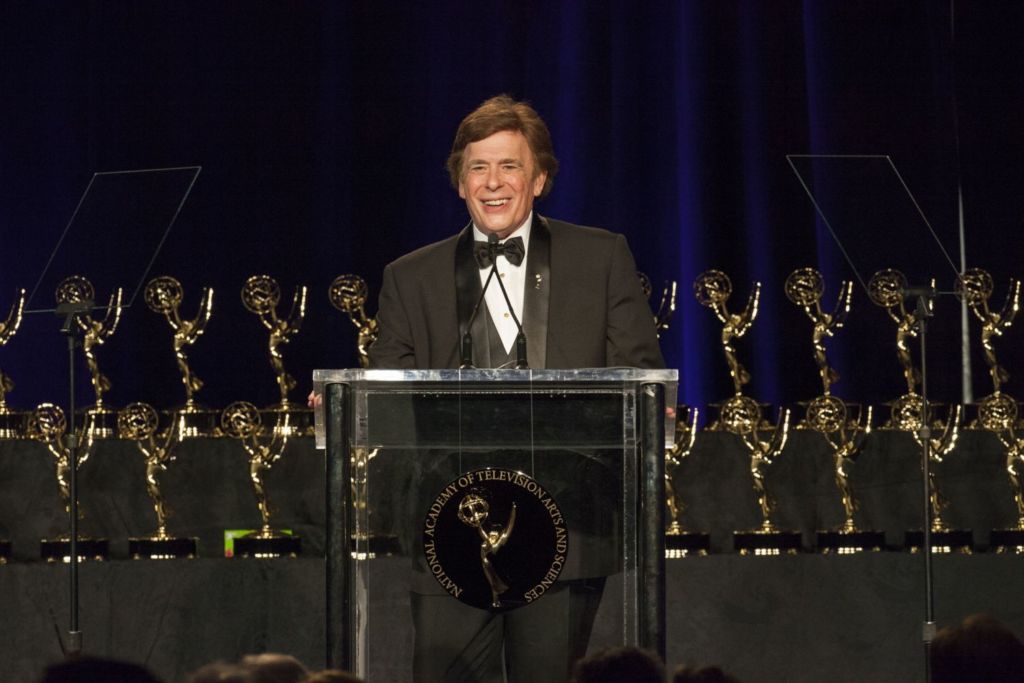
Courtesy/NATAS
Does this mean a demotion for David Michaels, Senior VP Daytime Emmy Awards?
ADAM: Absolutely not. That’s something that I want to put a very strong pin in right here. David led the 2018 Daytime Emmys to record participation and a growing audience. This new resourcing of the team allows him to be more singularly focused on doubling down on that success for 2019. The Daytime Emmys are the only entertainment award show to have posted year-over-year audience growth from 2017 to 2018, and more than 30% increase in the number of entries. The report rightly noticed that we did not do enough administratively to scale to that growth and to bring the resources to manage that added audience, and that added interest from competitors. So, now we are going to make sure that David and Brent Stanton (Executive Director, Daytime Emmy Awards) each have the support and focus they need to be successful.
When the letter from various soap producers pointed out a “conflict of interest” for having the executive producer of the Daytime Emmys ceremony also be the awards administrator, many were wondering how that would shake out, or how NATAS planned to deal with this complaint.
ADAM: Obviously, “conflict of interest” is a legal term of course, but I think that what the reports found was that it was not a conflict of interest. It was a conflict of time, and many of the more specific errors that were raised in the report, as I said to David, occurred in the 25th hour of the day. So, that is where it was really a resourcing problem, and a lack of procedure and policy problem. The lack of resourcing created the environment for something to go wrong, and the lack of policy and procedure created an ad hoc nature for how we address those problems and made that ad hoc response open to questions because there was no prior documentation that this was how these things should be handled. So, hopefully we have addressed each of these areas going into 2019, and that gives us a chance at a fresh start with the community.
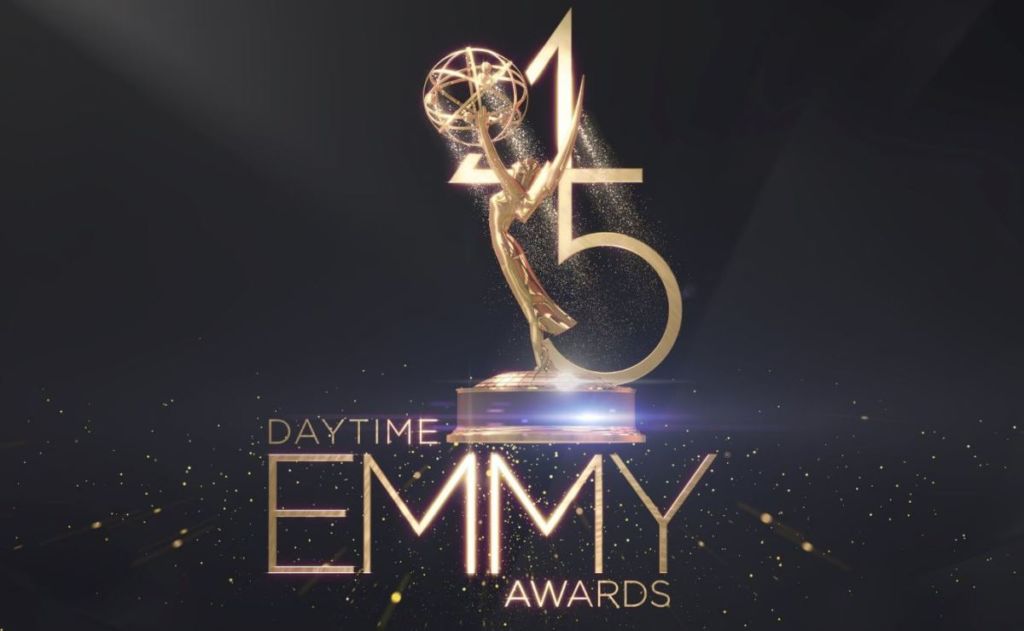
Courtesy/NATAS
In response to the internal investigation findings, you mentioned you would bring additional resources to the Daytime Emmys, additional help in the operations, and you would add a “second pair of eyes”. Would you potentially let people know who is in those positions that would be working with David Michaels and Brent Stanton?
ADAM: Yes, so we are absolutely at a minimum committed to adding one full time position, and a handful of part time positions for that initial vetting process of the competition; that review of entries to make sure they meet the technical requirements, rules, and guidelines of their categories. Now, in the past, there would be one individual, one set of eyes conducting that review, but now, we are modifying our policies such that before any adverse decision is made, such as disqualifying an entry, a second pair of eyes review it and give their independent assessment of the technical criteria and qualifications of the entry, so that there can be more confidence that multiple perspectives were employed before making any decision that could have an adverse effect on an entry.
Could a daytime drama actor participate and submit their work on n their own without the show being a part of it, if let’s say, the soaps won’t participate as a whole? And on that note, what would be the plans moving forward for the Daytime Emmys if the soaps decide not to participate in the competition?
ADAM: If an actor or actress wishes to enter on their own with their soap still not participating: our rules permit anyone to enter independent of their program. So, there is not a requirement that a show participate for an individual performer on that show to participate. That said, they need to have the actual material to submit, and certainly a performer on that show is not necessarily the owner of that show and the owner of that content. So, the question of whether they would have the necessary access to and rights to the video material to submit, that would be a question to the show producers as to what they would allow of that. In terms of the Daytime Emmy ceremonies moving forward without the soaps, the old saying goes, ‘the show must go on,’ and hopefully, it won’t come to that. We have had constructive conversations with each of the broadcast soaps and believe our response and support goes a long way to addressing their concerns. So, we are looking forward to having them. Of course, they have a number of colleagues in digital drama, children’s programming, gameshows, and the rest of daytime television that we still expect to have a robust program at the 46th Annual Daytime Emmys in May of 2019.
You had mentioned that when you saw the results of the report that you felt it was very thorough, and you felt it pointed out things that needed to be fixed.
ADAM: Yes, the report was exceedingly thorough and fair. It delivered criticism where criticism was due, and there were a number of areas where we should have and must do better in the management of the Daytime Emmys and our other awards competitions. I think the report certainly examined every issue that had been raised by members of the Daytime community and then some. It allowed us to think about what actions we can take as a team to address each of those points. I don’t think any awards show in our space has ever undertaken such an in-depth introspection of their procedures, yet alone made it public. So, hopefully we are a trend-setter here.
The report indicates that NATAS will work more closely with the Television Academy (ATAS). That seems to always be a point of contention. How do you see yourself improving participation with them to engage that academy in more of the process?
ADAM: So, the relationship between the two academies has strengthened incredibly in the past year, largely through the leadership of our respective chairman, Terry O’Reilly, the chairman of NATAS, who was elected earlier this summer and Hayma Washington at the Television Academy. Obviously, they are going to have a new election soon as Hayma is retiring from the role. So, we can continue that momentum into 2019. What we note in our response to the report, was that one element of concern raised in the letter from the four soap producers was the mix of Television Academy members on our judging panels, and we want to be responsive to that. We are prepared to make Television Academy membership a much higher priority in our consideration of judges for these panels, but obviously accessing that membership and engaging that membership requires a deeper partnership with the Television Academy, and we will see to that.
You are starting the call for entries on Monday, November 12th. If the daytime dramas don’t participate within the timeframe you’ve given, do you see yourself adjusting the timeframe for the soaps if they were to say, “We want to work somethings out before we commit,” or are you just going to move forward if they are not participating in the deadlines you’ve set?
ADAM: Our deadlines are going to be rather firm for all entrants. We have a show date set for May and a process that moves backward from there in terms of the time that is needed. Certainly, the fact that we have added additional review steps and procedures makes that timeline even more critical. So, we are not going to be in a position to be extending extensions really to anyone. In fact, the report specifically discourages granting extensions to anyone because that could create the appearance of unfairness that some types of entries get more time than other types of entries. We welcome everyone, and if by the entry deadline there are particular genres, programs, or individuals that choose not to participate, we will miss them, hope they attend the show in May, and hope we can reengage them for 2020.
If the soaps did not participate in the 46th annual Daytime Emmys, but decided to come back later, it is my understanding that there would just be one drama category whereby web series and daytime soaps would be competing together in that. Is that potentially what could happen?
ADAM: I don’t want to go too many branches down off a tree of ‘what if’s,’ but our policies and guidelines do allow that if a category does not have a sufficient number of participants to be competitive, then that category can be eliminated or merged with another category or have its entries moved into another category for the competition. So, we will look at all of the categories once we have the entries to see which ones remain viable and which ones do not. Certainly, the fact that we do have digital drama categories gives us a place to contribute to have a drama competition regardless of what mix of entries we have. I suspect that once you combine those, it becomes very difficult to uncombine them in the future, but obviously the call to entries is revisited every year, so, I can’t think of any long-term prognostications beyond 2019.
Since you are relatively new to your position with NATAS, you probably weren’t expecting that the producers that signed the letter demanding that change and issues be addressed in regard to the Daytime Emmys or they would boycott, would be something you would be dealing with off the bat. How did you feel about it?
ADAM: Well, I’m obviously rather new to the role. My first day as interim president was the day after the Daytime Emmy show this year. I was only named the permanent president last week. It was certainly a trial by fire. I would not say that I had enough history with the daytime drama community to have any expectation one way or another, and I think that is also true of our chairman, Terry O’Reilly, who came into office on July 1st. That said, in a world of looking for silver linings, I think it gave us an opportunity for a blank slate and a fresh start. By the community raising these concerns to our attention, and allowing us to conduct this deep review and make it public and be responsive to the issues they raised, it gives us a lot more opportunity to strengthen that relationship in 2019 than if a lot of these concerns had just continued to deteriorate and be whispered about at various cocktail parties, but never really spoken up and therefore, never really addressed. So, while it was a painful process and there were parts of this report that were difficult to read, I think it gave us the opportunity to start from scratch and to put some of that history behind us.
So, do you think NATAS has addressed the concerns of the daytime dramas? What did you think of the points raised by Adam Sharp in this interview? Do you hope the Emmys will continue as usual with all four network soaps participating? Share your thoughts in the comment section below.
What do you want to change ? Daytime is dead disgusting storylines actors who think they are important and choose who they will be paired with please cancel them all they deserve it!!!!
This sounds ridiculous. How can you have a daytime emmys wihtout the soaps. a digital drama is not a drama and the daytime emmys aren’t even on tv anymore. I won’t watch if my shows aren’t there.
What audience growth is he talking about? They’re not even aired. Is he suggesting Facebook is a television audience? You lost my interest at that point in this article. You truly lost it when he suggested, if soaps don’t show up this year, see you later bye, and accept what happens when you do come back. What a joke.
With Facebook having recently launched its own streaming service, Facebook Watch, long-form programming beyond just short-form content is gaining a foothold.
The success of the US remake of the Norwegian series SKAM in the service this year showed that there is an audience for television-quality content in a digital platform.
Hi James. I use Facebook as a touchstone for family and old childhood friends only. Not as a broadcast network. That platform has enough problems just trying to keep it’s original purpose in check. I doubt very seriously watch Facebook will will even be a ” Thing” after a fashion. What wasn’t addressed.. Why the Emmys aren’t televised, and what could be done to make that happen. You can say and hope a lot of things. It ain’t necessarily true tho. Yeah there’s an audience for TV type content digitally. Just not Facebook. My opinion.
That edit button is a beautiful thing Michael Fairman TV.
Facebook, like any platform needs to grow out in order to remain relevant in the long-term, just as how radio and television started out as mediums that were meant to spread only information but became more than that. It is similar to how Netflix transitioned from being an online video rental service to a fully fledged streaming one over the course of the past decade.
Seeing how Facebook alone have essentially replaced online social forums as fans migrated to the platform to talk about things with regards to their favorite shows, whether through private groups, public fanpages or the official accounts of the shows themselves, the audience engagement rate is high. You can tell by the hundreds of comments left under a single post from the DOOL official fanpage alone.
It would be foolish to ignore that potential in tapping an audience who will no doubt watch a video about their favorite daytime shows, which made sense for Facebook Watch to serve as the streaming home of the Daytime Emmys.
The award show is no longer pulling the numbers it used to have from the era of lesser competition on terrestrial television, being bumped to cable where it got even less, and sponsors unwilling to buy ad spots. In fact, just about every American award show has seen their numbers dropping per annum. We all have to accept that the marketplace isn’t what it used to be, and we either concede or become a trailblazer, which NATAS is trying to do by having the show air on an online platform. If the engagement is high, the views meet the needed threshold, and the actual award show doesn’t suck, then we got ourselves a winning combo for the fans, for the industry, for everyone.
With the rise t of original scripted content on streaming services like Hulu and Netflix, can a show like House of Cards be on the same category as a smaller production such EastSiders (both available on Netflix worldwide) on award shows like the Emmys?
Days Of Our Lives
Days of our Lives wins WGA Award for Daytime Drama Series
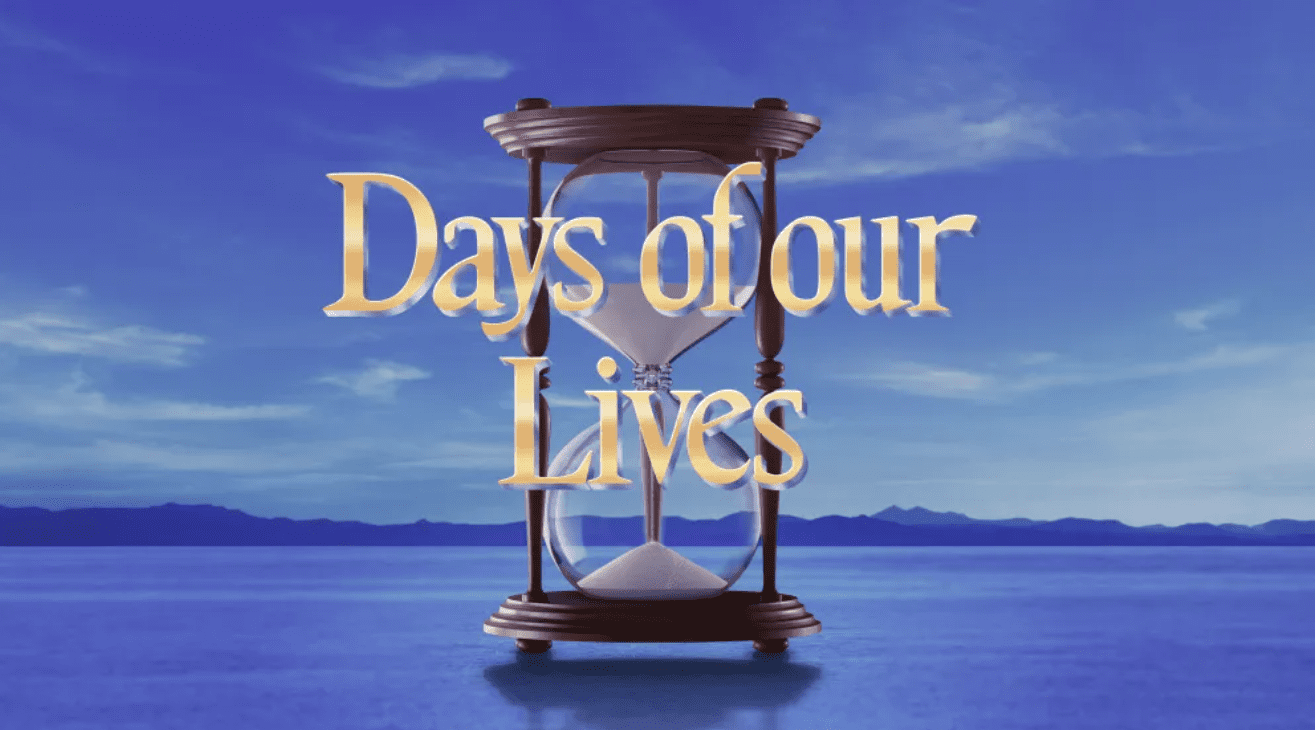
Sunday night, April 14th in concurrent ceremonies in Los Angeles and New York City, the Writers Guild of America is handing out their 76th annual WGA Awards in the fields of motion picture, television, news media, and radio/audio.
In the Daytime Drama category, Peacock’s Days of our Lives was the winner, taking home its fourth WGA Award in this category in a row.
The DAYS winning writing team consisted of Head Writer Ron Carlivati Creative Consultant Ryan Quan and Writers Sonja Alar, Jazmen Darnell Brown, Joanna Cohen, Carolyn Culliton, Richard Culliton, Cheryl Davis, Kirk Doering, Christopher Dunn, Jamey Giddens, David Kreizman, Henry Newman, Dave Ryan, and Katherine D. Schock.

Photo: JPI
The team from Days of our Lives bested the only other team in the category from General Hospital, which consisted of former GH head writers: Dan O’Connor, Chris Van Etten Writers Ashley Cook, Emily Culliton, Suzanne Flynn, Charlotte Gibson, Lucky Gold, Kate Hall, Elizabeth Korte, Shannon Peace, Stacey Pulwer, Dave Rupel, Lisa Seidman, and Scott Sickles.
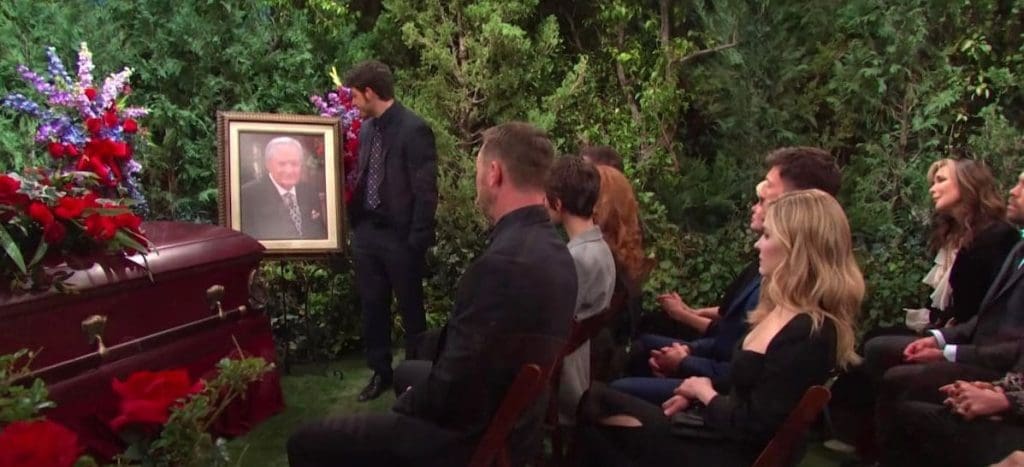
Courtesy/Peacock
As previously reported, a show spokesperson for Days of our Lives shared that the episodes submitted for the competition were #14663, #14678 & #14679, and mostly centered around the death, and the funeral of Victor Kiriakis played by the late John Aniston.
This week, DAYS head scribe, Ron Carlivati, confirmed that, and told Michael Fairman TV on the decision of the scripts the team submitted: “I like to have some humor, but it was also the funeral, and then there was Sarah (Linsey Godfrey) giving birth, and then Vivian’s (Louise Sorel) crashing the reading of the will.”
You can follow along with the live updated list of all the winners from tonight’s WGA ceremonies here.
Michael Fairman TV will have more on DAYS WGA Award win as it becomes available.
So, what do you think of Days of our Lives winning the WGA Award writing award for a Daytime Drama series for the fourth year in a row? Comment below.
Days Of Our Lives
Matthew Ashford and Melissa Reeves Talk Return to DAYS for Doug’s Funeral, Susan Seaforth Hayes, and Their Enduring Friendship
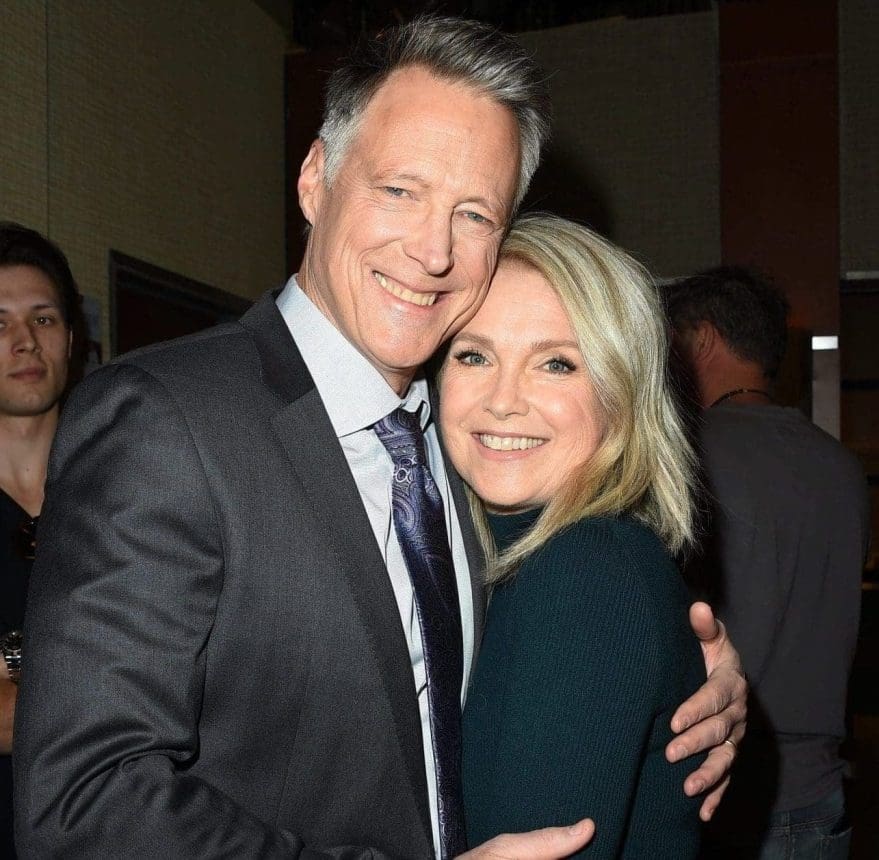
Last week, Days of our Lives celebrated the taping of their 15,000th episode which is tentatively scheduled to air on December 3rd. The story will feature emotional and heart-tugging scenes of Doug Williams funeral and honor his portrayer, the beloved Bill Hayes, who passed away on January 12th at the age of 98.
While the actors, producers, and crew took a lunch time break to pose for some pictures and speak with the press, they knew they would have to get back to taping the funeral, which was going to make it a tough day, but also cathartic for all who loved Bill Hayes.
Several returns have thus far been announced including; Melissa Reeves reprising her signature role of Jennifer Horton (a part she first played in 1985), and Matthew Ashford as Jack Deveraux. Reeves had last appeared on the show back in 2021, and she was replaced by Emmy-winner Cady McClain in her absence when Jennifer was in storylines. In real-life, Melissa had moved full-time to Tennessee along with her husband, Scott Reeves (ex-DAYS, GH, Y&R). Now, and as previously reported, Reeves will first appear back on DAYS for the Thanksgiving episodes with the Hortons.

Photo: JPI
Michael Fairman TV caught up with Matt and Melissa during the 15,000th episode celebration to get their take on: being back for these special episodes, how it has been working with and watching Susan Seaforth Hayes portray Julie’s grief over losing Doug, and how they have supported each other through the years. Check out what they shared below.
Melissa, you are back on the set of Days of our Lives for this very emotional and special moment in the series history. How does it feel?
MELISSA: Oh, my goodness. I am honored. I wouldn’t want to be anywhere else but to be here for Bill. He was like my real-life dance partner. He taught me how to ballroom dance. And to be here for Susan, of course, who’s just been our sweet hero this whole week. We’re just following her lead. She’s just been this incredibly strong example for us in the midst of this trial and season of her life. She is like just lifting us all up with her. It’s been incredible.
I was at Bill Hayes memorial service which was truly incredible and I know at the time you were in Tennessee. It was moving and celebratory of his life, all at the same time.
MELISSA: That’s all I have heard. I have to watch it on You Tube. They said it was just a real celebration of his life and I love that.

Photo: JPI
This must be difficult for Susan Seaforth Hayes depicting the death of Doug, when she is still grieving the loss of her beloved husband. (Susan pictured above with the returning Stephen Schnetzer who plays her on-screen brother, Steve Olson).
MELISSA: I’m sure Susan has those moments at home by herself, but she’s so good at being a leader and leading all of us. We’re following her, you know, and she’s like, “This is how I want to feel today.” And we’re just going along with her, you know? It’s so sweet.
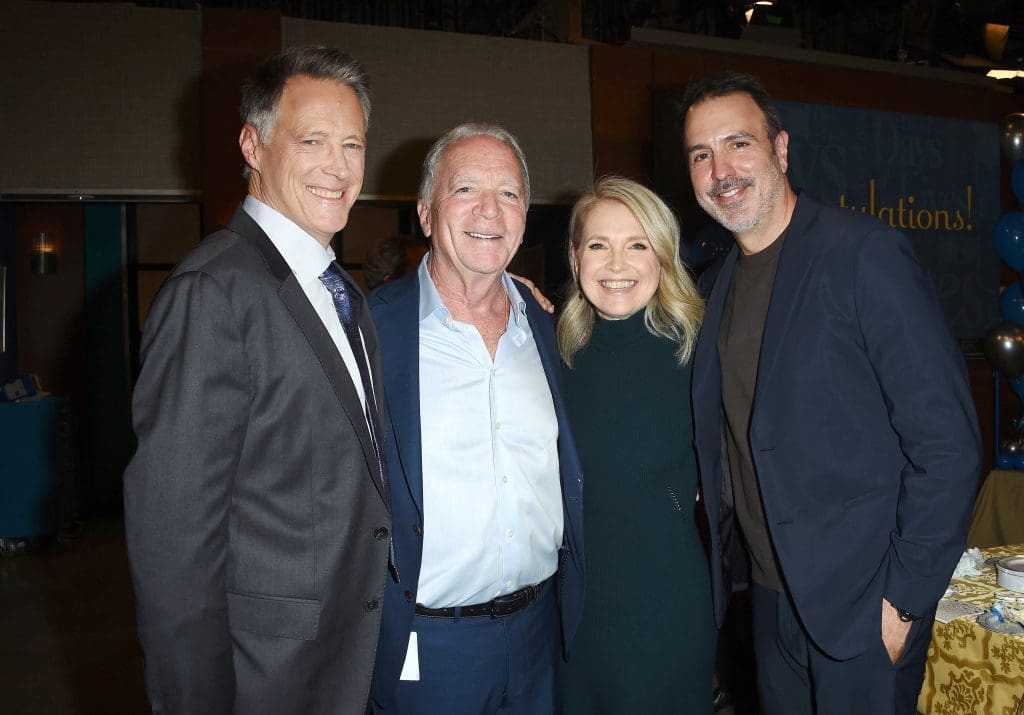
Photo: JPI
How is it to see Matt Ashford again live and in-person?
MELISSA: You know, Matt and I can go years without talking, or seeing each other, and then the minute we see each other we’re chatting away.
MATT: Melissa was out on set doing a scene yesterday on the phone talking to a stage manager; as she was telling some really tough news on the phone. I’m like crying in the background, literally, I’m off-stage crying.
MELISSA: And then we get like back into normal life, and we’re like, okay, “What’s happening? What’s happening with this … or what’s happening with that?”
I had read, Melissa, that you were in touch with Matt about if there night be a possibility for you to reprise your role as Jennifer for these special episodes?
MELISSA: Yes. Well, Matt was like, “Hey! Would you want to come back? “And I was like, “Matt, you know, I would always come back. ”
MATT: Every time I come here to Days of our Lives, they ask, “Where’s Missy? How’s Missy?” Everybody backstage says, “I miss her.” All of the crew is asking about her and saying, “It would be nice to see Missy. Nothing wrong with you Matt, but …” They said, “Where is she?” I said, “She wants to come!”

Photo: JPI
There are some beautiful photos of Missy and Bill and Susan thorough the years that I found. It just reminded me of just the deep and entrenched history we all have had with the show, personally and professionally.
MATT: Missy is roughly the age where Francis Reid (ex-Alice Horton) was when she started the show, which is just crazy.

Photo: JPI
I’ve always said Missy was going to be the next generation Alice. Do you feel that Jennifer is the heir apparent matriarch of the Horton family?
MELISSA: Yes. I mean, this has been greatest blessing of my life, and that would be great. I told Ken Corday (executive producer, Days of our Lives) when I was 17 that this show would be my life. Ken always told me, “This is your home,” and I’ve always felt like that.
How have gotten through the scenes watching Susan Seaforth Hayes as Julie go through the loss of Doug?
MATT: Susan is bringing her best performance life for her and Bill. I mean, she’s a showbiz baby. She always has been one hundred percent, and she’s doing it for him, and this is who they’ve always been. So, you’re seeing this amazing performance colored by her life. She has her private life as Susan, but she has enough plugged into Julie that she’s done amazing work. The director, producers and writers are giving her room to live in these moments and it’s quite wonderful.
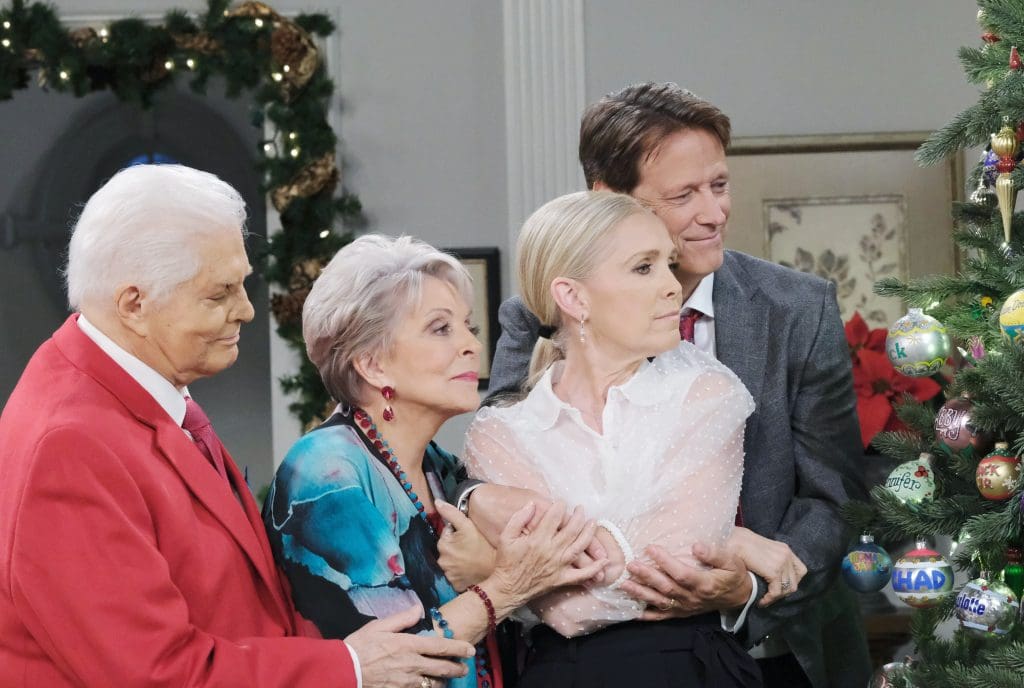
Photo: JPI
Have you already broken down in tears during the taping?
MELISSA: Yesterday, but today’s taping of the actual funeral I think they want us to try and be just more celebratory.
MATT: I mean, it is a beautiful long life for Bill Hayes and his character of Doug Williams, and so it will be about that. Then, you get a bunch of us together in the church pews, and there’s going to be hijinks.
MELISSA: We all have been through the waves of grief. You have that awful cry and then all of a sudden you feel okay. There are those family situations we are portraying where you’re like, “What do we do? What do we do now? You know, no one knows what to do. But, it’s so sweet. I’m looking forward to seeing how the scenes all turn out.
So, are you glad that Matt and Melissa are back for the 15K episode and Doug’s funeral? From what we can tell, it’s going to be quite an emotional journey for Days of our Lives fans, and especially the performance of Susan Seaforth Hayes,
Days Of Our Lives
Ron Carlivati Talks on Decision to Make Days of our Lives 15000th Episode About Doug’s Funeral, and Previews Chances for WGA Award
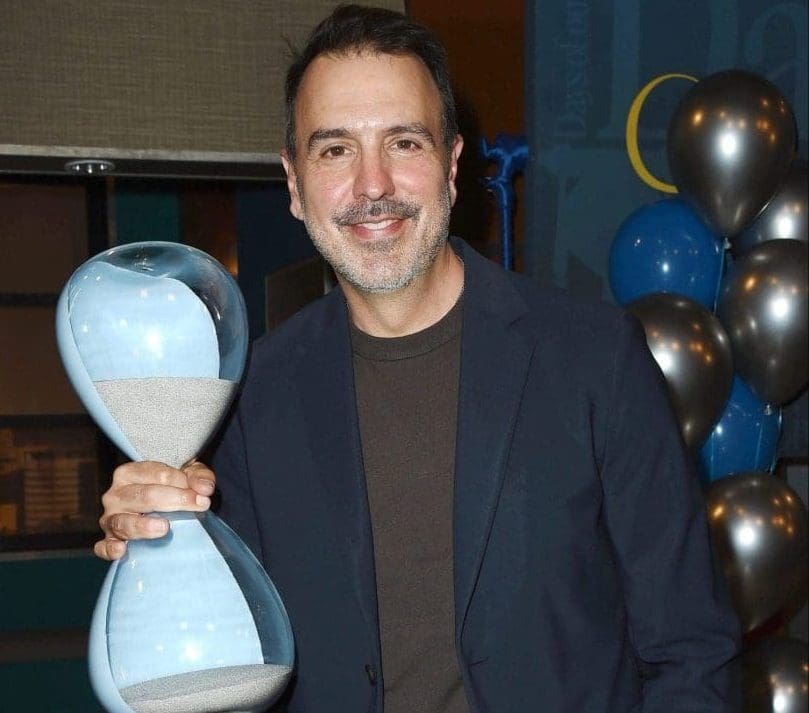
This week, Days of our Lives celebrated the taping of their 15,000th episode. In of it itself, that is an incredible accomplishment for the long-running soap opera currently streaming on Peacock.
However, this on set gathering was a bit different. Though the show is celebrating their achievement, they are also in the middle of taping scenes surrounding the death and the funeral of Doug Williams, played by the late Bill Hayes, who passed away on January 12th of this year at the age of 98.
As previously revealed many longtime favorites are back to honor Bill and the character of Doug including: Gloria Loring (Liz), Melissa Reeves (Jennifer), Matthew Ashford (Jack), Maree Cheatham (Marie), Victoria Konefal (Ciara) and Stephen Schnetzer (Steve) to name but a few.

Photo: JPI
Michael Fairman TV was in attendance and spoke with Days of our Lives head writer, Ron Carlivati to gain some insight into how the 15,000 episode was crafted and the decision to honor the character of Doug Williams and Bill Hayes as its epicenter. In addition, Ron weighed-in on this Sunday’s April 14th WGA (Writers Guild of America) Awards, where he and his writing team are facing off with General Hospital for the daytime drama prize. Here’s what Ron shared below.
Was this your idea to make the 15,000th episode centered around Doug’s funeral and passing?
RON: It was. When you’re looking at it, and laying out the calendar for the whole year and you see 15,000 is coming up, we’re like, “What are we going to do?” And then, we got the news that Bill had passed away and something kind of clicked. I was like, “We should honor Doug on that show.” So then, we started to kind of build around that … when does he pass away? How does he pass away? Who could come back? You know, it’s a lot. I’m very pleased with the returns that we got as there’s so much that you could do. We wanted everybody we could get. So, we put together a wish list and Janet Drucker (co-executive producer, Days of our Lives) made it happen.

Photo: JPI
You have Melissa Reeves back as Jennifer, when the role was last played by Cady McClain. What has it meant to have Missy back for these shows?
RON: It was so nice to see Missy Reeves. I think Cady has done such a good job, but on the 15,000th episode to see Missy as Jennifer, it’s a big deal. So having her was great, and overall, the milestone was a big undertaking, because you want to live up to it. You want the 15,000th episode to be good. Now, it has a lot of real emotion that you’re playing. because for the cast and the crew they’re honoring Bill Hayes just as much as we’re honoring Doug Williams.

Photo: JPI
Was it hard for you and the team to write this episode?
RON: Yes. I’ll tell you why it was hard to write. When I wrote, for example, Asa’s (Phillip Carey) death on One Life to Live or Victor’s (John Aniston) on DAYS, Asa is a different type of character. Like, you could have characters going, “Oh! I’m glad he is dead.” You could have different points of view, but with Doug, you’re not having that. Every person loves this man. No one had a bad relationship with him. So, you’re challenge as a writer is how do you make it that not everybody’s saying the same thing and doing the same thing. And so, we tried to find ways to make the episode about all the familial relationships and yet, how do you make it about Doug and yet broaden the scope.
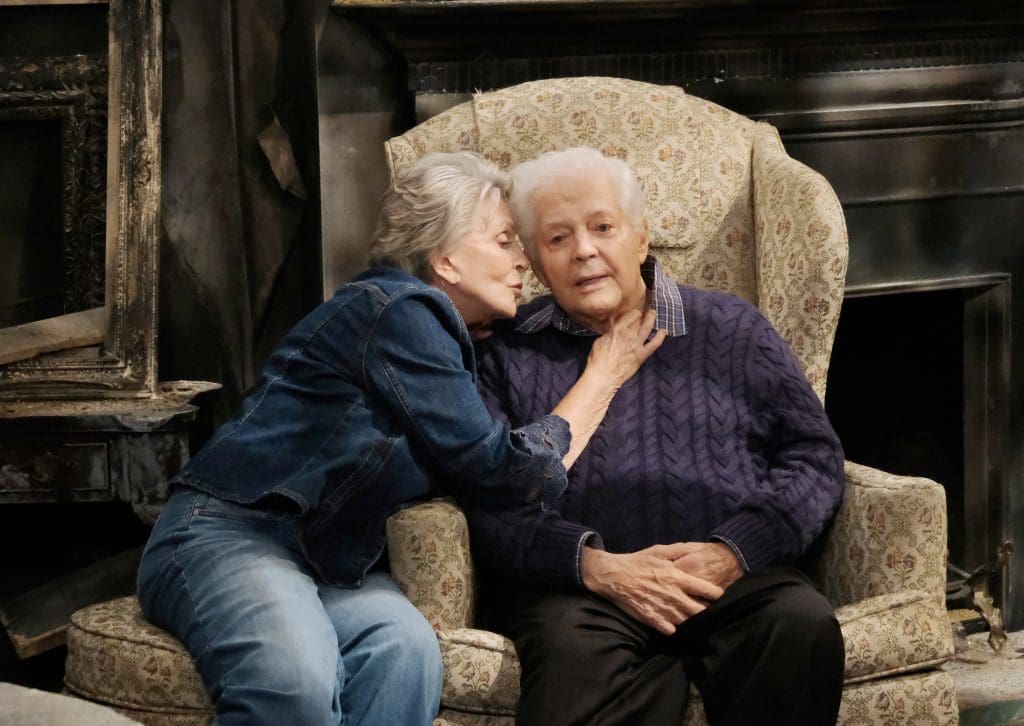
Photo: JPI
I had spoken to Susan Seaforth Hayes (Julie), a week after Bill’s memorial, for an interview. She said that she felt very fortunate that you did include her on discussions of how you would tackle Doug’s passing. How did that conversation go?
RON: First, I attended Bill’s funeral, which was incredible. I said to so many people it was an emotional service, but it was hard to be sad at this. The guy had an incredible life and it was an incredible celebration. And so, you’re sitting there watching this knowing that you now have to write something similar. And how do you write something that lives up to what you just witnessed? I wanted to talk to Susan to get her thoughts about, you know, how much do you want this to be about keeping Bill separate from Doug. How comfortable are you sharing your grief. She was incredible to talk to. It was a great chat.
You’re in the middle of taping these major scenes for the 15,000 episode to air in December. How do you think it’s going? Have you seen any of the scenes?
RON: I haven’t seeing anything. I mean, we were still making changes to the script up till this morning!
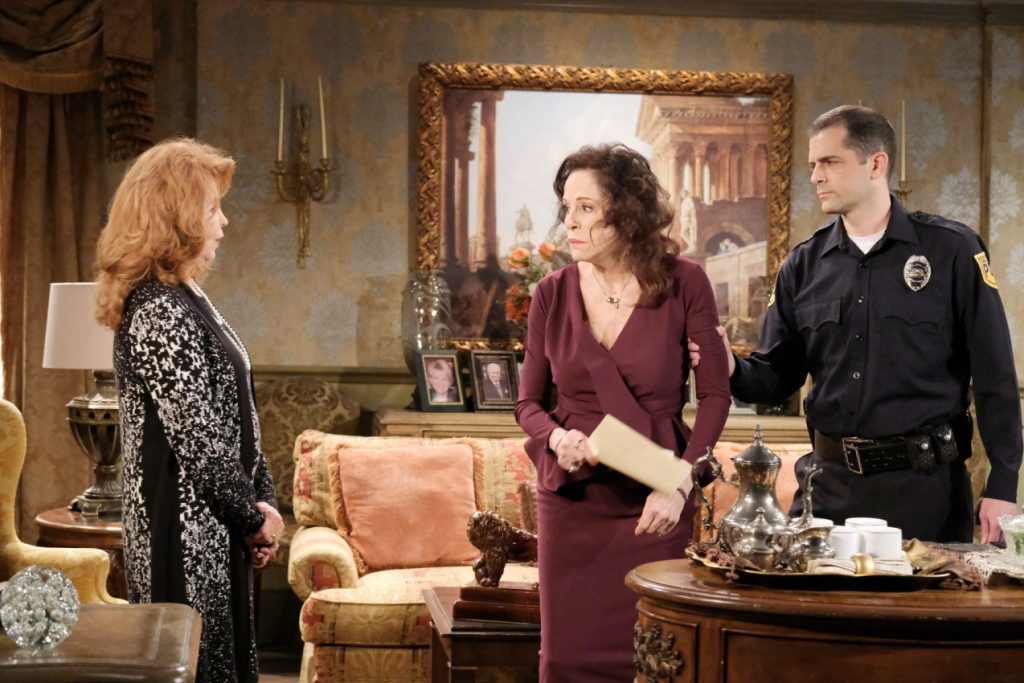
Photo: JPI
The Writers Guild Awards are this Sunday, April 14th and once again this year there are two daytime drama nominees, General Hospital and Days of our Lives. How are you feeling about your chances this year?
RON: It is often just GH and us in the category. I’ve won three years in a row, so I’m kind of feeling like it’s their turn.

Photo: JPI
What episodes did you submit for contention? If I recall, they had to do with Victor’s memorial.
RON: The episodes we submitted were centered around Victor’s funeral. I think one has story with Vivian (Louise Sorel). We had some fun stuff, we had some emotional stuff at Victor’s death, and I am pretty sure that our submission was three episodes right around that time.
Did you make the decision to go with those episodes because there was a mix of humor and drama?
RON: I like to have some humor, but it was also the funeral, then there’s Sarah (Linsey Godfrey) giving birth, and then Vivian’s crashing the reading of the will. So, we had a lot of fun and it’s hard sometimes to pick three that tell a story, as opposed to submitting for the Daytime Emmys, where the writing team only submits two shows. So, we shall see how it goes on Sunday.

Courtesy/Peacock
So, are you looking forward to the emotional 15,000th episode of Days of our Lives? Do you think DAYS will take home the WGA writing award for daytime dramas for the 4th year in a row? Comment below.
-

 General HospitalApril 12, 2024
General HospitalApril 12, 2024George Russo to Appear on General Hospital as Carmine Cerullo
-

 Days Of Our LivesApril 13, 2024
Days Of Our LivesApril 13, 2024Ron Carlivati Talks on Decision to Make Days of our Lives 15000th Episode About Doug’s Funeral, and Previews Chances for WGA Award
-
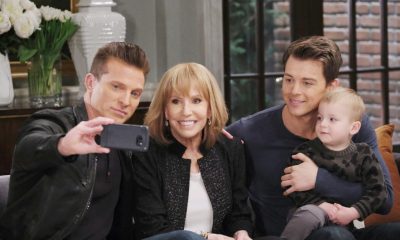
 General HospitalApril 15, 2024
General HospitalApril 15, 2024General Hospital’s Steve Burton Reveals the Emotional Scene He Almost Could Not Get Through
-
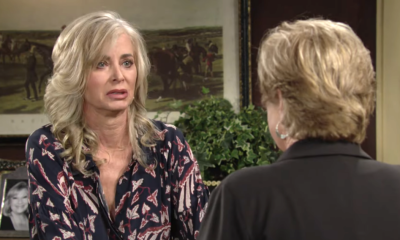
 RecapsApril 14, 2024
RecapsApril 14, 2024Y&R’s Eileen Davidson Delivers the ‘Power Performance of the Week’
-
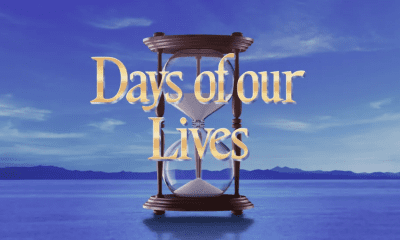
 Days Of Our LivesApril 14, 2024
Days Of Our LivesApril 14, 2024Days of our Lives wins WGA Award for Daytime Drama Series
-

 NewsApril 12, 2024
NewsApril 12, 2024Y&R’s Hayley Erin Previews Her Role in Horror-Thriller ‘New Life’






